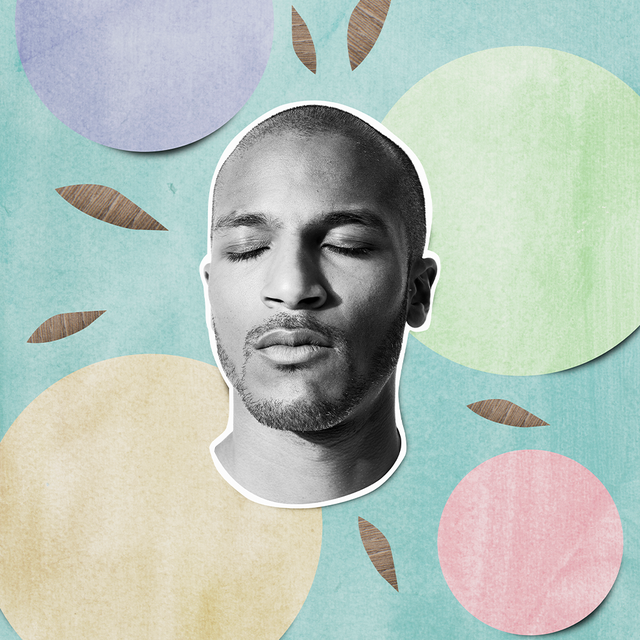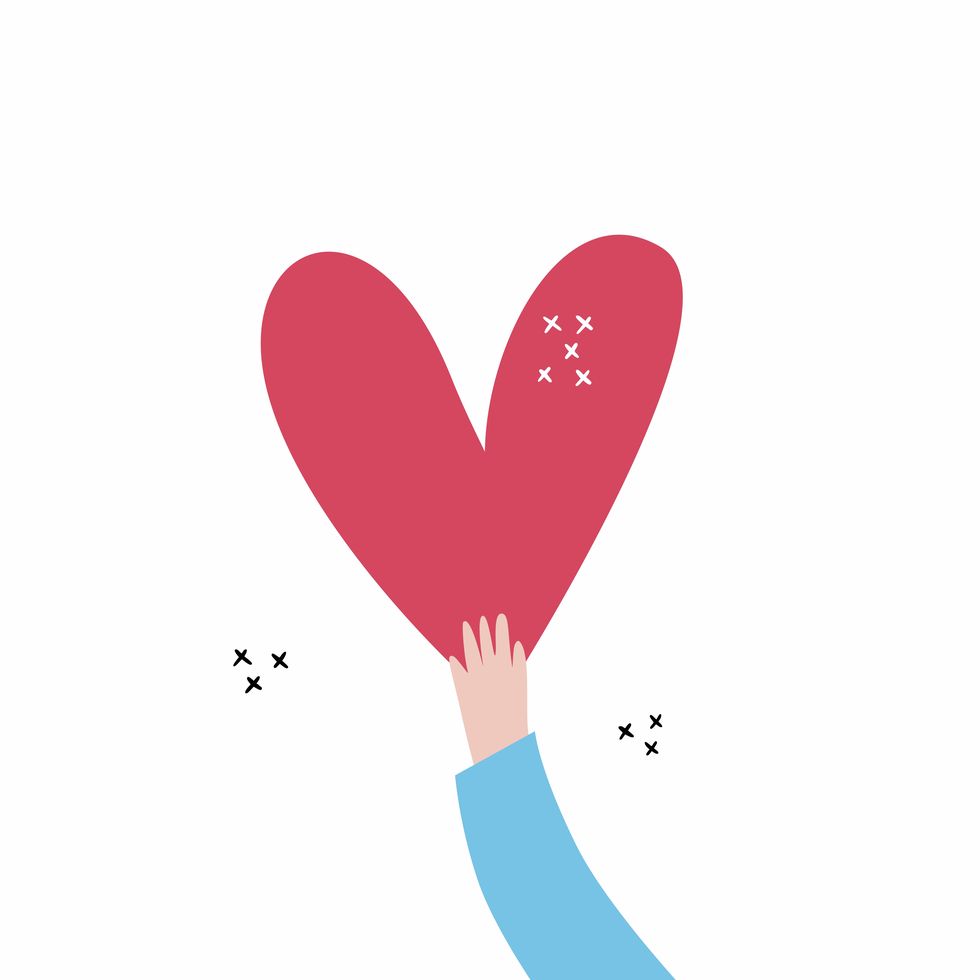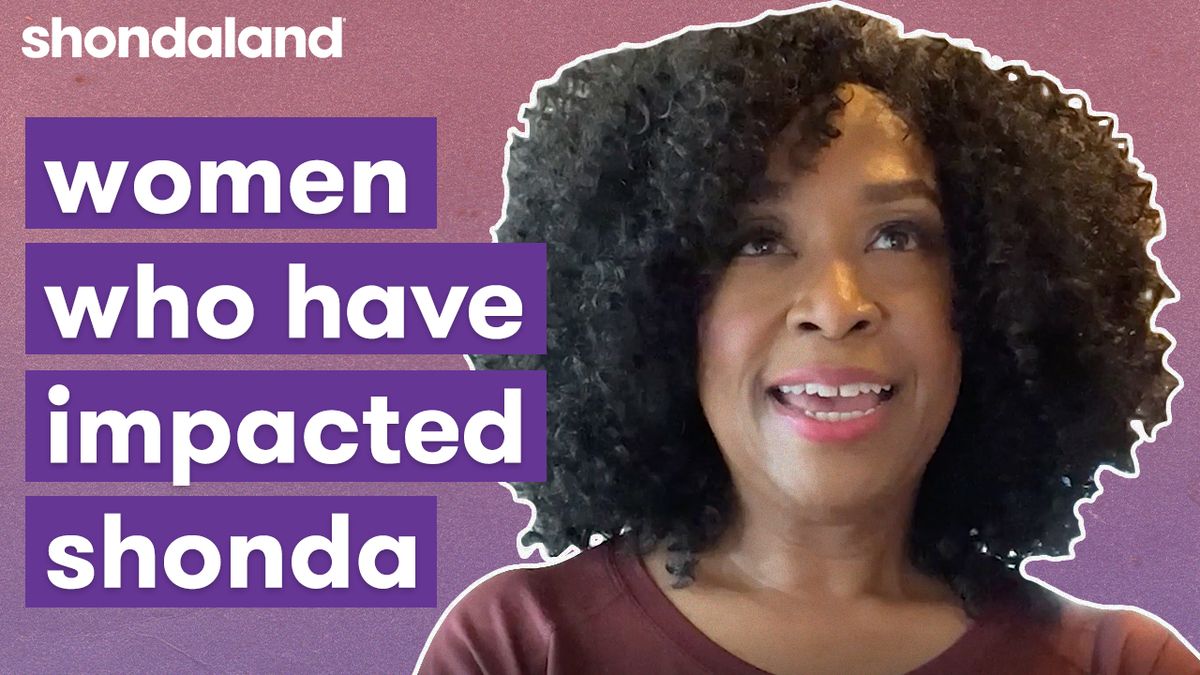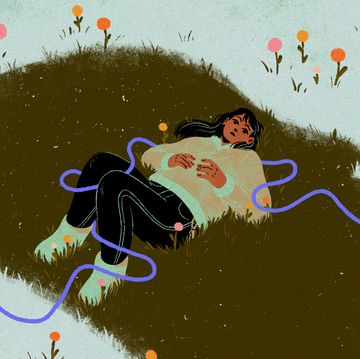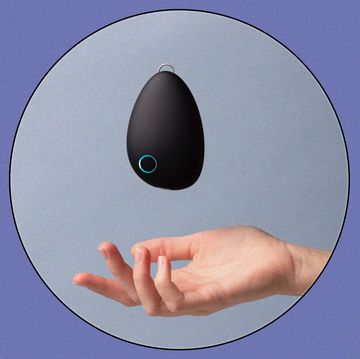A dear friend — a friend I admire for her ability to guide others — recently admitted to suffering from a bout of the “shoulds.” She pointed out that every time she told herself she “should” have done something or “should” be doing something, she was essentially flagellating and shaming herself.
Barbara Barna Abel, a media coach and the host of the Camera Ready & Abel podcast, is the friend I’m speaking of. “We get stuck into this idea of an endless list of things we should do in terms of life, career, how we live our lives, or what we believe in,” she told me. “My feeling is we get stuck in what we should feel and what we should do versus what we want to do, what makes us happy, what we’re good at, and where our passions lie.”
“Shoulds” are an inevitable part of everyone’s self-speak vocabulary, but this can be both a good thing and a bad thing. Barna Abel says the “shoulds” often feel burdensome to her because they imply obligation. “When [we’re] doing something because we feel we ‘should’ and it’s out of obligation, we also start to build resentment toward ourselves, other people, and situations that can lead to depression, a victim mentality, and all sorts of other [negative] things. When we’re doing things because we ‘should,’ we gloss over the idea of choice,” she says.
Kristin Neff, PhD, an associate professor at the department of educational psychology at the University of Texas at Austin and the author of Fierce Self-Compassion, says though the “shoulds” can spur you into action temporarily, over-“shoulding” can carry negative side effects, like reinforcing fears of being unacceptable and a fear of failure. “This actually creates performance anxiety and [feelings of] failure, which undermines your ability to achieve in the long run,” she says, adding that procrastination and performance anxiety can make it harder for you to do your best, have grit, and stay focused on your goals.
A propensity toward a “should” mindset can come from early neural imprinting within fear-driven cultures, says neuroscientist Tara Swart, author of The Source: The Secrets of the Universe, the Science of the Brain. “Cultures can mean family, society, school, or religion. Even in adulthood, the ‘shoulds’ are about the things you had to do to survive without punishment, which can be literal or be shame, guilt, or humiliation.” Telling ourselves we “should” be doing this or “should” be doing that subconsciously brings up the shame or guilt that would have been the punishment for not behaving as expected during childhood, says Swart.
Though the word “should” in self-talk can seem — and sometimes is — innocuous, it can also signal that we’re being hard on ourselves, and that’s something to be aware of. Negative self-talk can lead us to perceive the world as an “unsafe and punitive place with scarce resources,” says Swart, which can feed into a victim mentality rather than a sense of agency over our lives, and keep us from taking healthful risks.
Science recognizes the harsh impact negative self-talk can have on our psyches, outlook, and health. In 2018, Neff, who has conducted tons of research about the power of self-compassion, examined how self-compassion affected academic performance for college students. It was associated with “reduced self-presentation concerns and increased student communication behavior,” implying greater class participation. “Self-compassion allows students to see themselves clearly, accept their mistakes and imperfections, and take action to correct mistakes,” reads the conclusion of the study.
Another randomized field experiment conducted by different researchers found that children with negative competence beliefs would often achieve below their potential in school. They also looked at whether engaging in positive self-talk would benefit the students’ mathematics performance. The researchers found that kids who weren’t all that confident but engaged in encouraging self-talk performed better and effectively “severed the association between negative competence beliefs and poor performance.” It seems they gave themselves permission to succeed by learning positive ways to self-reassure.
Negative self-talk can even take a physical toll on us if we aren’t careful. Swart says it reduces the DOSE hormones: dopamine for reward, oxytocin for bonding, serotonin for mood, and endorphins for the feel-good factor. “It leads to increases in the stress hormone cortisol, which puts our brain in survival mode and doesn’t free up resources for higher brain functions like regulating emotions or overturning biases, including those we have against ourselves,” she explains.
Neff says negative self-talk is often linked to depression and anxiety. “Self-criticism activates the sympathetic nervous reaction, which is your fear response (or your fight-or-flight response), and self-compassion activates the sympathetic response and calms it down,” explains Neff. “If you find a depressed person, they’re almost guaranteed to be very self-critical. A lot of anxiety is caused by constant self-criticism, and anxiety undermines our ability to perform if you’re totally activated.” An activated fight-or-flight response isn’t great for you physically and can contribute to health issues like high blood pressure.
So how can we best coach ourselves through a case of the “shoulds” like Barna Abel did?
Get to why you’re shoulding
Barna Abel says, situation permitting, her first step in quelling the inner “shoulds” is to check in with herself and ask what would it look like to let go of what she thinks she should do and actually start to do what she wants to do. “It’s just stopping and being honest with yourself about your resistance. A lot of times, what gets stuck in the ‘shoulds’ are things that we’re not good at. There are things you may have been putting off because they aren’t things you really want to do, or are things that you may find difficult,” Barna Abel says. Then, actually plot out your options. “Ask yourself: If I knew I couldn’t fail, success was assured, and money was no object, what would happen? This gets you to open up in terms of possibility and alternate solutions,” she adds.
Neff also recommends taking a beat to examine your motives. “A self-compassion break is like hitting the reset button on a computer,” she says. Acknowledge that you’re struggling in some way and validate your own feelings. “Whatever you’re feeling — be it shame or disappointment — voice the negativity and acknowledge the pain with mindfulness,” she says.
Remember our common humanity — and that humans make mistakes
“Compassion, in Latin, means to suffer with this inherently connected compassion,” says Neff. “Everyone makes mistakes. Everyone is imperfect. Tell yourself there’s nothing wrong with me for having this issue. Tell yourself you’re not the only one.”
Give your words a positive spin
Swart suggests getting to the root of what drives your “shoulds” — and making the opposite thought your mantra. For example, swap “I should be famous/employed/rich by now!” for “I am exactly where I’m supposed to be in my life and will continue to work toward my goals.” For another way to redirect negative self-speak, Neff recommends asking yourself if you’d use the same language you use to chastise yourself and direct it at someone you really care about. If the two don’t match, write down what you’d say to your loved one and try saying it to yourself.
Show affection toward yourself
“Physical touch is one of the ways to change the nervous system — it actually helps you calm down and reduces cortisol,” says Neff, who adds that a simple self-soothing gesture, like putting your hands on your heart, is a surprisingly simple and effective way to help you calm down and feel kindness toward yourself.
In closing, Barna Abel says that redirecting her “should” self-talk freed her up to be even more productive. “Letting go of resentment is very personally empowering,” she says. “It really starts to switch the energy from ‘should’ to choice.” And who wouldn’t enjoy more choice?
Vivian Manning-Schaffel is a multifaceted storyteller whose work has been featured in The Cut, NBC News Better, Time Out New York, Medium and The Week. Follow her on Twitter @soapboxdirty.
Get Shondaland directly in your inbox: SUBSCRIBE TODAY
